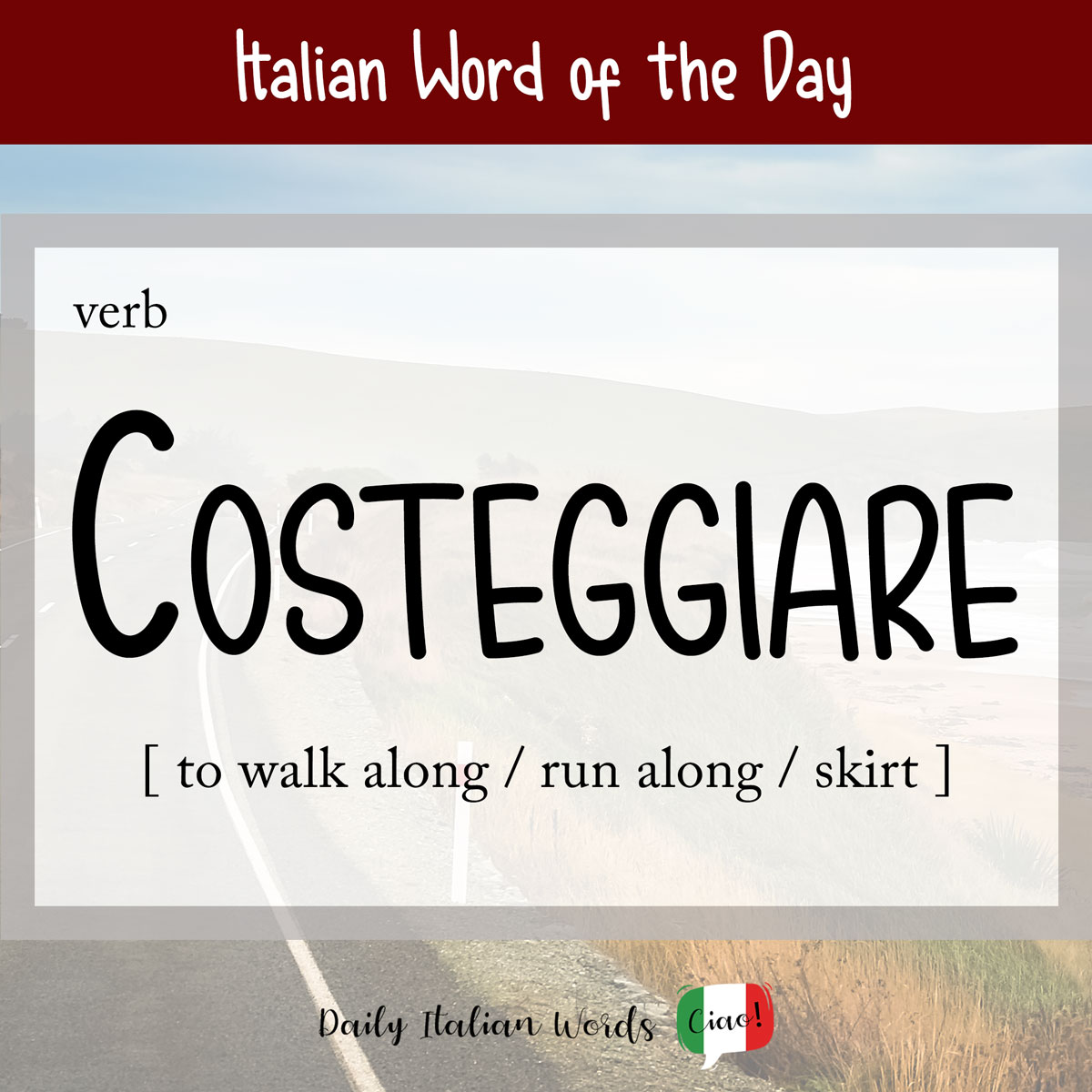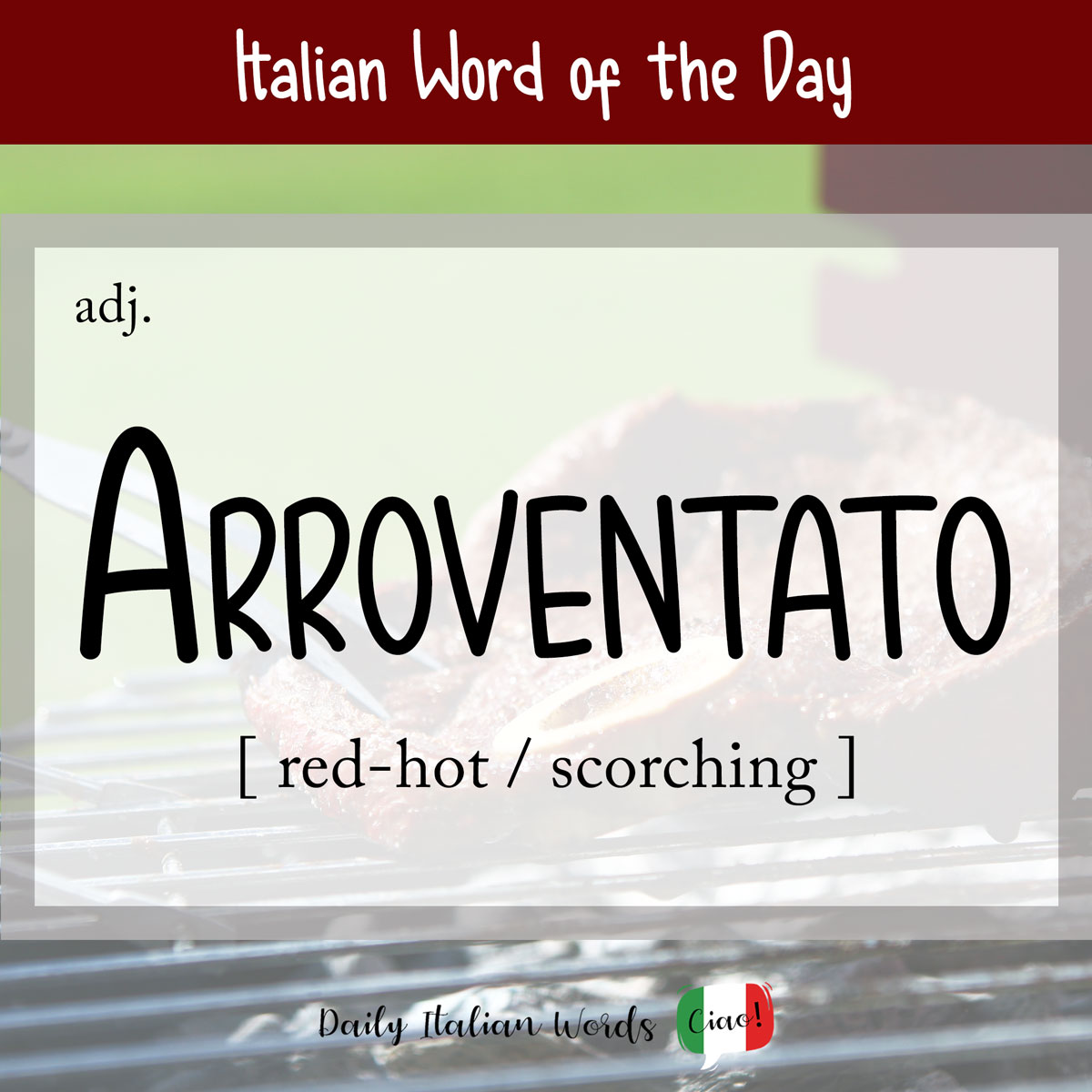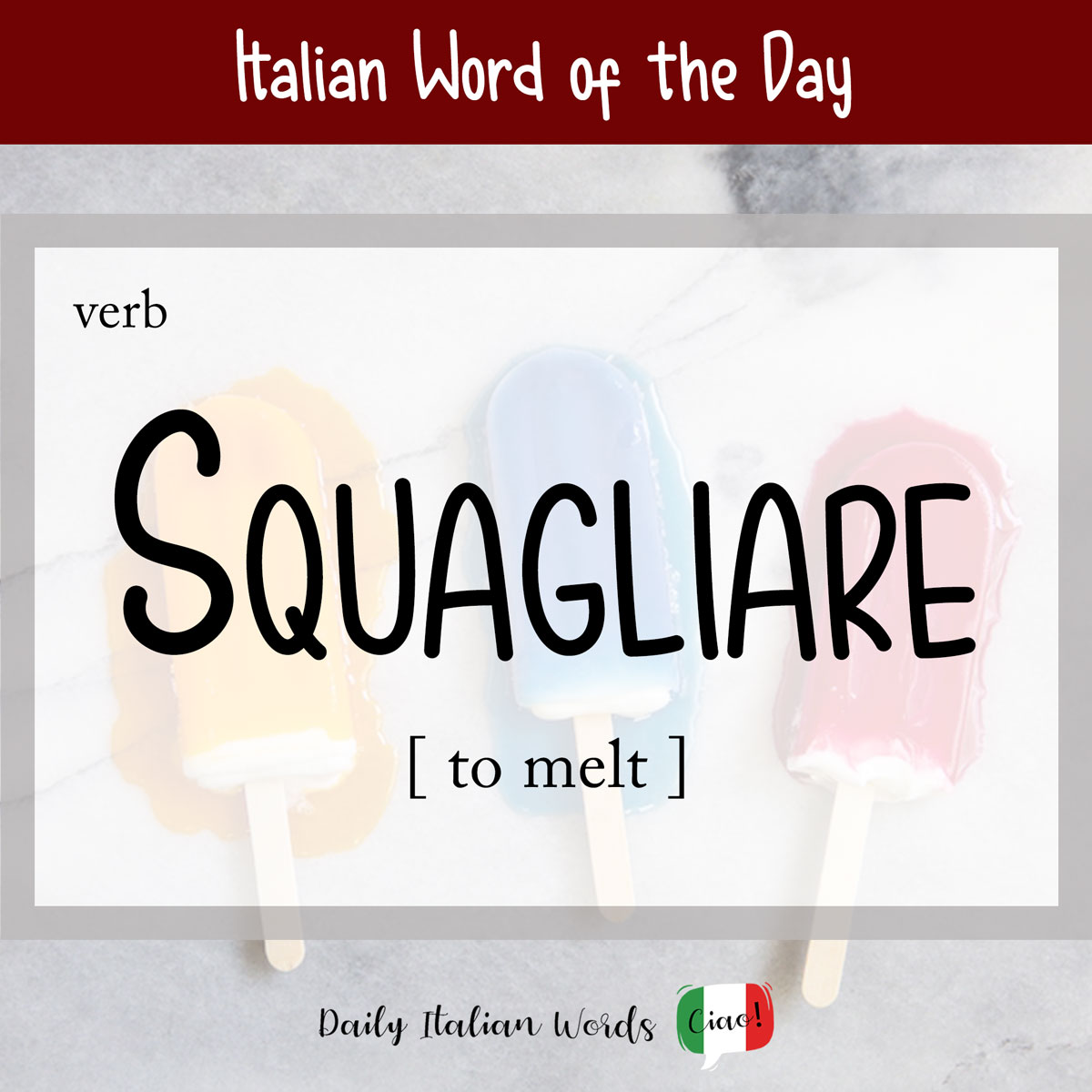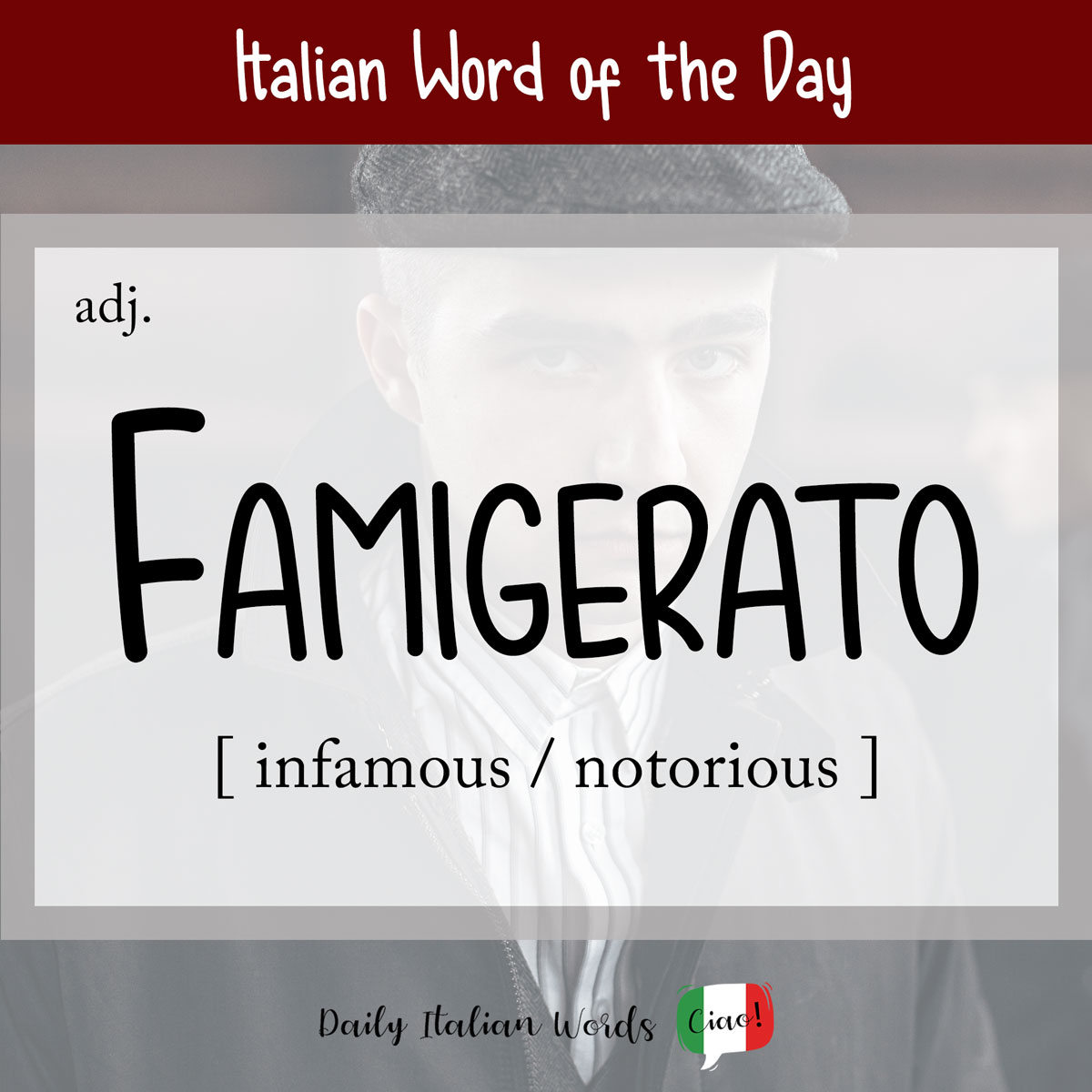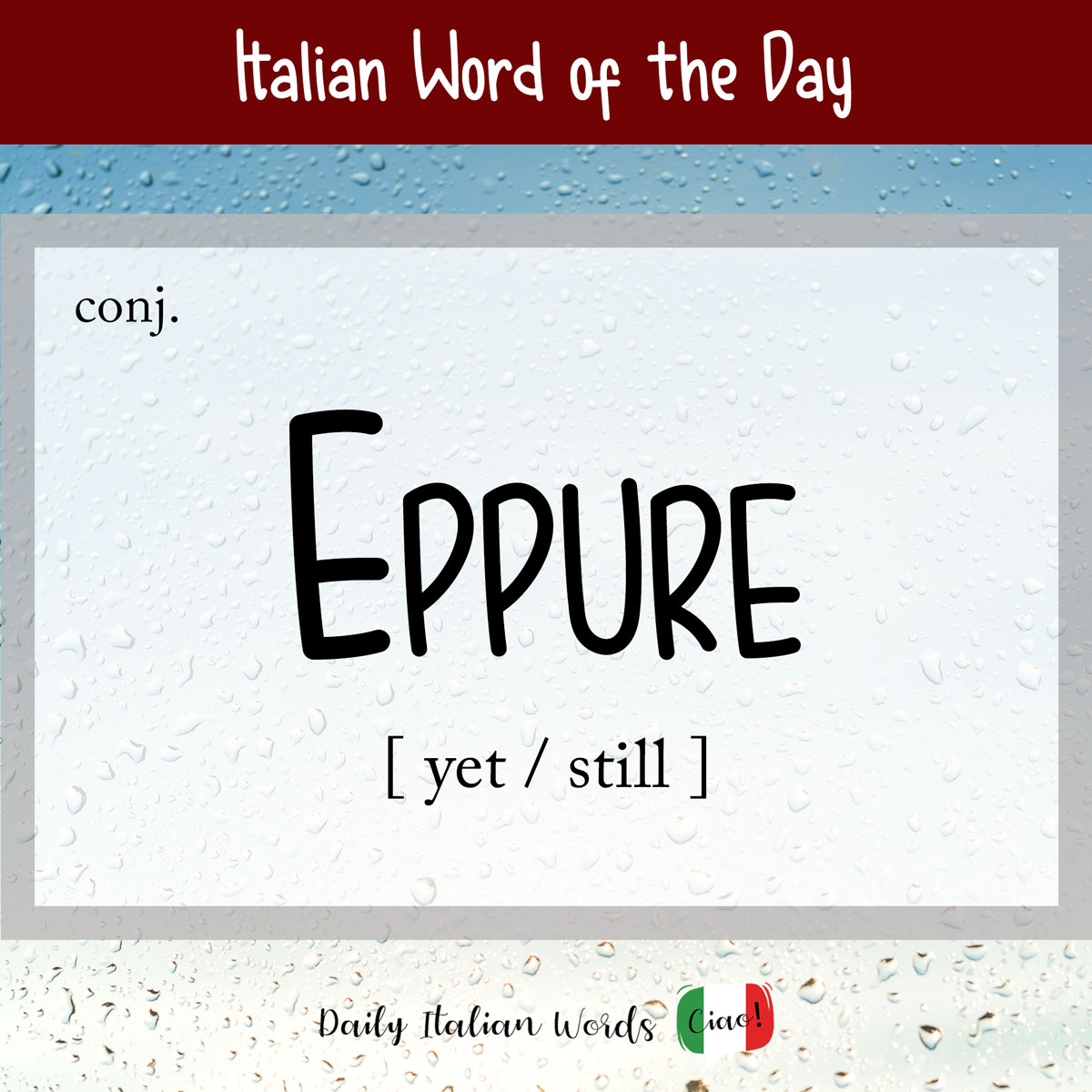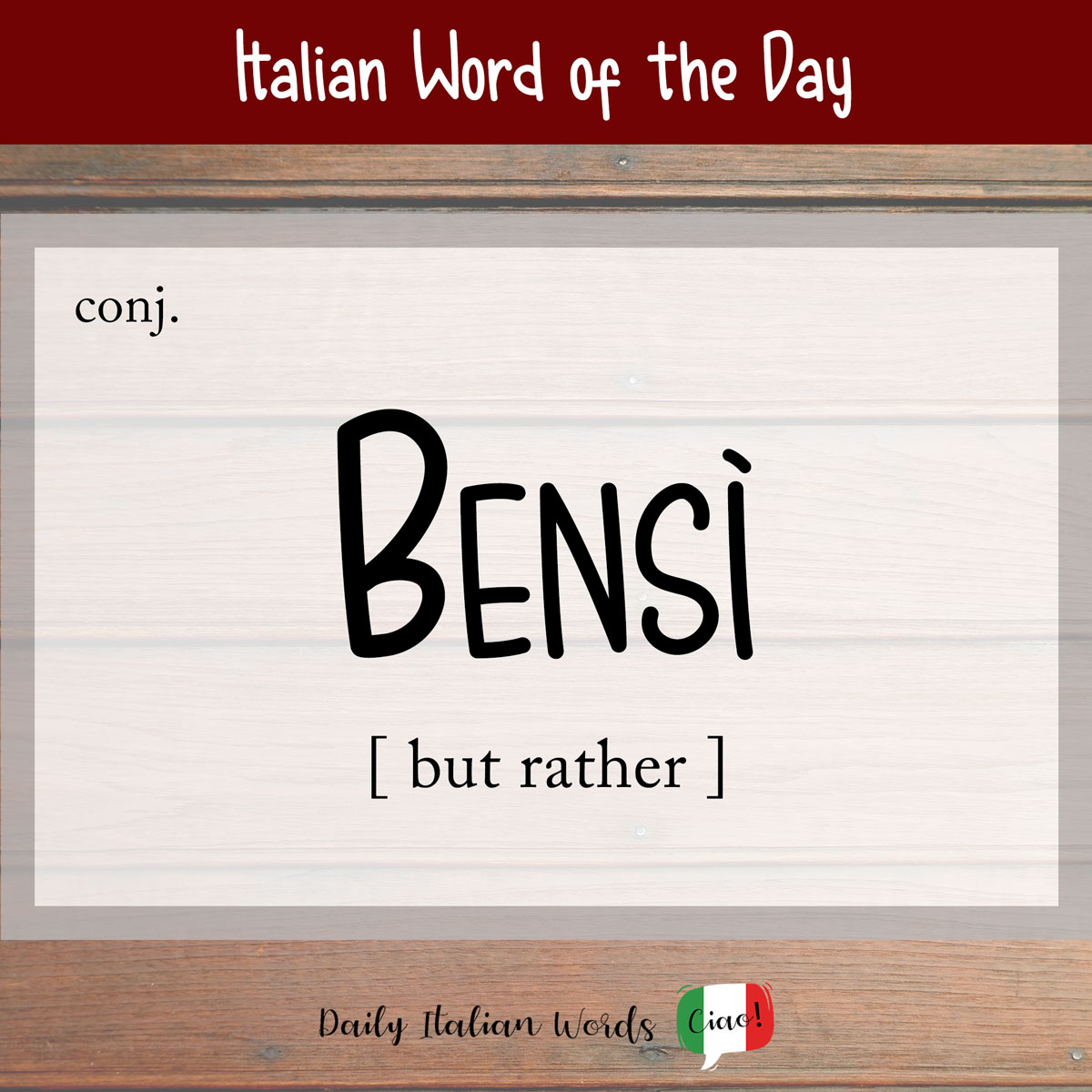Italian Word of the Day: Costeggiare (to walk along / to run along / to skirt)
Today we’ll be looking at a verb that was suggested by one of the members in our fantastic Facebook community: costeggiare. costeggiare Costeggiare is a regular -are verb, so it can be conjugated in the following manner in the present tense: (io) costeggio (tu) costeggi (lui) costeggia (lei) costeggia (Lei) costeggia (noi) costeggiamo (voi) costeggiate …

